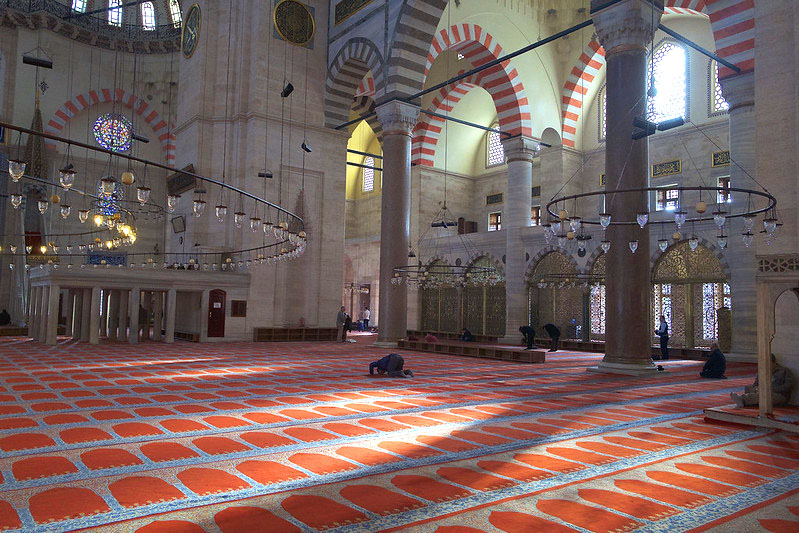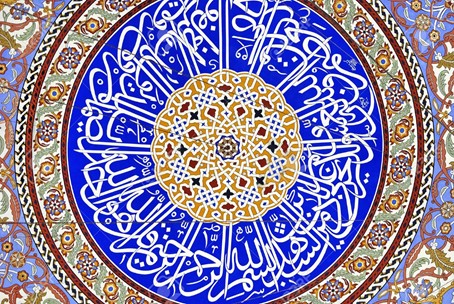Articles
Tranquility, or sakînah, in Islam
Article author: Dr. Mohamed Chtatou
Date of publication of the article: 16/11/2021
Year of publication: 2021
Article theme: Corán, Filosofía, Islam, Philosophy, Quran, Religions.
Tranquility is the character, or state, of that which is calm, serene, without anxiety, without anguish. The word tranquility appears in many texts, ranging from religious writings, where the term refers to the tranquility of the body, thoughts and consciousness on the path to Liberation, to an assortment of documents, where the interpretation of the word is directly related to engagement with the natural environment.
Being psychologically in a quiet or restorative environment allows individuals to take a break from the periods of sustained attention that characterize modern life. In the development of their Attention Restoration Theory (ART), Kaplan and Kaplan[i] have proposed that the recovery of cognitive overload can be most effectively achieved by returning to a natural, fortifying environment that removes daily distractions and allows the imagination to wander, thus allowing individuals to reconnect with their environments. The theory works on the principle that the number of reflections possible in such an environment depend on the type of cognitive engagement. For example, the attractiveness of the environment.
An environment of low attractiveness is known to have enough interest to attract attention, but not enough to the point that it interferes with the individual’s ability to think. In this sense, Soft Fascination, which has been taken by Herzog[ii] and Pheasant[iii] as a correct term to describe tranquility, provides a satisfactory level of sensory feedback that involves no effort other than to extricate oneself from a cluttered mental environment.
What does “sakînah” mean?
Sakînah سكينة is an Arabic term of great semantic richness, which can be translated by: inner peace, quietness, serenity, tranquility, and rest. It thus designates a state of inner being characterized by great peace, absolute quietness, a feeling of inner security, etc.
Sakînah, universal discourse
Sakînah is a universal ideal and object of the inner quest of men in very diverse cultures since the origins of History. In pre-Socratic Greek philosophy, sakînah takes the form of ataraxy, a word coming from the Greek ataraksia, absence of disorder. Ataraxy defines an absolute quietude of the soul, conceived in epicureanism and stoicism as the principle of happiness. Sakînah is also an ecumenical ideal, shared by the three monotheisms, the Arabic term having the same semantic relationship with the Hebrew shkhinâ and the Aramaic (language of Jesus) shkhîntâ.
Sakînah and its semantics
As in these languages, the term sakînah comes from the root skn, which has two main notions:
- That of quietude, immobility, and rest. The Holy Qur’an says:
“It is He Who causes the dawn to split forth, and has ordained the night for repose, and the sun and the moon for reckoning time. All this is determined by Allah the Almighty, the All-Knowing.” (Qur’an, 6: 96).
فَالِقُ الۡاِصۡبَاحِۚ وَ جَعَلَ الَّيۡلَ سَكَنًا وَّالشَّمۡسَ وَالۡقَمَرَ حُسۡبَانًا ؕ ذٰلِكَ تَقۡدِيۡرُ الۡعَزِيۡزِ الۡعَلِيۡمِ
We find this notion in the term sukûn, silence, which also designates in the Arabic language the sign in the form of a circle surmounting certain letters to indicate the suspension of pronunciation, its closure. A universal symbol, the circle thus represents the rest of the language, silence as a beyond of language, but an afterlife that nevertheless arises after speech, that is to say, not without it. No rest of the soul without words to overcome the evils, seems to suggest the Arabic language from the outset!
- That of dwelling, of installation, of residence:
Thus, to the verb sakana, he inhabited, is linked the word maskan which precisely designates what in French is called “la demeure“, in the double meaning of dwelling, of domicile, but also of “what remains” in this dwelling, that is to say what remains stable, fixed, immobile: namely rest, calm. Maskan is therefore the house as a “haven of peace”, a “place of rest”, where one can feel sheltered from the movement and jolts of the world. Conclusion: From this etymological investigation, we can metaphorically deduce that sakînah is the state of the soul which, after the daytime agitation, finds its inner shelter to taste the “sakînah” of “sukûn al-layl“, literally the “rest” of the “silence of the night”.
The Law, shelter of the social sakînah
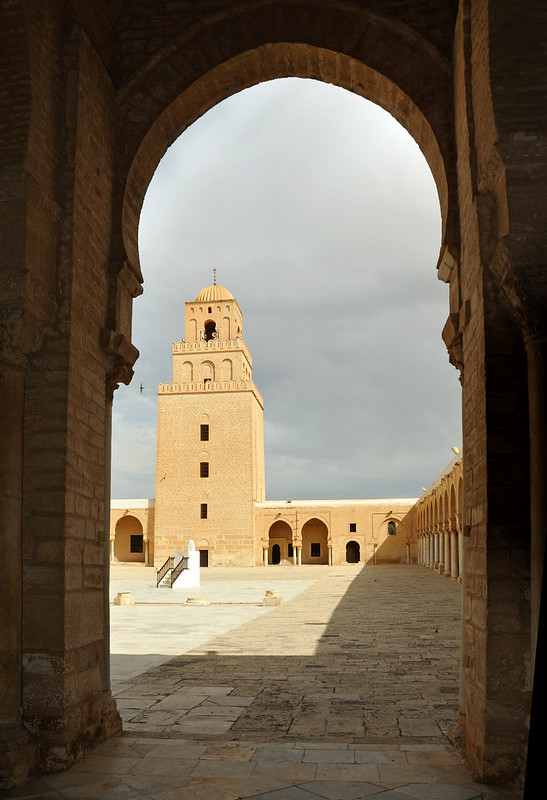
If the “quietness” of the soul requires a “dwelling” to shelter it, it is because this state of being is not given from the outset: it is acquired, even conquered, precisely by the construction of this resting place. The three monotheisms symbolize this haven of peace with the “Ark of the Covenant”, a gold-covered acacia wood chest containing the “Tables of the Law”. The Qur’ân evokes the episode when the Israelites found this ark that had been taken from them:
“And their prophet said unto them: “Behold, it shall be a sign of his [rightful] dominion that you will be granted a heart endowed by your Sustainer with inner peace and with all that is enduring in the angel-borne heritage left behind by the House of Moses and the House of Aaron. Herein, behold, there shall indeed be a sign for you if you are [truly] believers.”” (Qur’ân 2:248).
وَقَالَ لَهُمْ نَبِيُّهُمْ إِنَّ آيَةَ مُلْكِهِ أَن يَأْتِيَكُمُ التَّابُوتُ فِيهِ سَكِينَةٌ مِّن رَّبِّكُمْ وَبَقِيَّةٌ مِّمَّا تَرَكَ آلُ مُوسَىٰ وَآلُ هَارُونَ تَحْمِلُهُ الْمَلَائِكَةُ إِنَّ فِي ذَٰلِكَ لَآيَةً لَّكُمْ إِن كُنتُم مُّؤْمِنِين
As for the Bible, it speaks of “kâbôd“, the “glory” of Yahweh, i.e. the “presence of God” deposited in the Ark of the Covenant (Exodus, 40, 34-35), a notion that will later be taken up in Jewish Tradition in the Hebrew term shkhinâ, which is absent from the Bible. The “glory of God” is also mentioned with a similar meaning in the Gospel (Matthew 17:5; Luke 2:9; John 1:14). This story of the “Ark of the Covenant”, which Jews, Christians and Muslims share in common, thus comes to teach men that they can live together in sakînah, in peace, since they are “allied” to each other by the same reference to a Law, the treasure of the social bond that they keep preciously in the golden chest. It is therefore not surprising that sakînah is found in another Qur’ânic episode of the covenant, the so-called “Covenant Pact”, which the Prophet’s followers, on their way to Mecca, concluded with him under a tree during the famous meeting of Hudaybiyya in the year 6/628:
“Certainly was Allah pleased with the believers when they pledged allegiance to you, [O Muhammad], under the tree, and He knew what was in their hearts, so He sent down tranquility upon them and rewarded them with an imminent conquest.” (Qur’ân, 48:18)
لَّقَدْ رَضِيَ اللَّهُ عَنِ الْمُؤْمِنِينَ إِذْ يُبَايِعُونَكَ تَحْتَ الشَّجَرَةِ فَعَلِمَ مَا فِي قُلُوبِهِمْ فَأَنزَلَ السَّكِينَةَ عَلَيْهِمْ وَأَثَابَهُمْ فَتْحًا قَرِيبً
The heart, shelter of the inner sakînah
In this last verse, a new, more interior “place of rest” appears, where the sakînah is housed: the “heart,” which is found in several other verses, for example in Qur’ân 48:4:
“He it is who sent down sakînah into the hearts of the believers, that their faith may be strengthened.”
The “heart” is thus to man what the “Ark of the Covenant” – that is, the Law – is to society: heart and Law both constitute a maskan, a “dwelling place”, for the sake of sakînah, that is, social peace and inner peace respectively.
The sakînah, or comfort after effort
But the peace of heart is not acquired without pain. It should be noted that it is often, paradoxically, in a context of war or conflict that the sakînah of the heart is mentioned in the Qur’ân, a conflict against the Mecca’s during the meeting of Hudaybiyya (Qur’ân, 48:18) or during the battle of Hunayn (Qur’ân, 9:26). The sakînah is seen as a divine helper that God “brings down” on the “hearts” of the Prophet and his companions to lead them to “victory”. However, this help appears there, on several occasions, in a very particular form, by the sending not of human warriors but of “invisible armies”, as when the Prophet, fleeing Mecca, takes refuge with Abû Bakr in a cave:
“It does not matter˺ if you ˹believers˺ do not support him, for Allah did in fact support him when the disbelievers drove him out ˹of Mecca˺ and he was only one of two. While they both were in the cave, he reassured his companion, “Do not worry; Allah is certainly with us.” So Allah sent down His serenity upon the Prophet, supported him with forces you ˹believers˺ did not see, and made the word of the disbelievers lowest, while the Word of Allah is supreme. And Allah is Almighty, All-Wise. “ (Qur’ân, 9 : 40).
إِلَّا تَنصُرُوهُ فَقَدْ نَصَرَهُ اللَّهُ إِذْ أَخْرَجَهُ الَّذِينَ كَفَرُوا ثَانِيَ اثْنَيْنِ إِذْ هُمَا فِي الْغَارِ إِذْ يَقُولُ لِصَاحِبِهِ لَا تَحْزَنْ إِنَّ اللَّهَ مَعَنَا فَأَنزَلَ اللَّهُ سَكِينَتَهُ عَلَيْهِ وَأَيَّدَهُ بِجُنُودٍ لَّمْ تَرَوْهَا وَجَعَلَ كَلِمَةَ الَّذِينَ كَفَرُوا السُّفْلَىٰ وَكَلِمَةُ اللَّهِ هِيَ الْعُلْيَا وَاللَّهُ عَزِيزٌ حَكِيم
What meaning can be given to these “invisible armies” that is still relevant today? Far from calling for violence, they teach on the contrary that the real battle is never against an external enemy but against an internal one. This is because a human army, even as powerful as that of the Prophet in the year 8/630, never provides the sakînah of the heart.
So on the day of Hunayn, when Muslims were gathered together in great numbers, which then did not protect them at all, and the earth, however wide it was, was narrow to you … Then God sent down His sake on His Messenger and on the believers, and He sent down armies which they did not see.
“Surely Allah has succoured you before on many a battlefield, and (you have yourselves witnessed His succour to you)23 on the day of Hunayn when your numbers made you proud, but they did you no good, and the earth, for all its vastness, constrained you, and you turned your backs in retreat.” (Qur’ân: 9:25)
لَـقَدۡ نَصَرَكُمُ اللّٰهُ فِىۡ مَوَاطِنَ كَثِيۡرَةٍ ۙ وَّيَوۡمَ حُنَيۡنٍ ۙ اِذۡ اَعۡجَبَـتۡكُمۡ كَثۡرَتُكُمۡ فَلَمۡ تُغۡنِ عَنۡكُمۡ شَيۡـئًـا وَّضَاقَتۡ عَلَيۡكُمُ الۡاَرۡضُ بِمَا رَحُبَتۡ ثُمَّ وَلَّـيۡتُمۡ مُّدۡبِرِيۡنَۚ
“Then Allah caused His tranquility to descend upon His Messenger and upon the believers, and He sent down hosts whom you did not see, and chastised those who disbelieved. Such is the recompense of those who deny the Truth.” (Qur’ân: 9:26)
ثُمَّ اَنۡزَلَ اللّٰهُ سَكِيۡنَـتَهٗ عَلٰى رَسُوۡلِهٖ وَعَلَى الۡمُؤۡمِنِيۡنَ وَاَنۡزَلَ جُنُوۡدًا لَّمۡ تَرَوۡهَا ۚ وَعَذَّبَ الَّذِيۡنَ كَفَرُوۡا ؕ وَذٰ لِكَ جَزَآءُ الۡـكٰفِرِيۡنَ
The Word here makes it clear that the “vast land” and its bellicose conflicts are too narrow a dwelling place, and therefore inappropriate, to hope to find “shelter” for “quietness”. This is why the “invisible” character of these armies, descending upon the “hearts” of the faithful, has led the mystics of Islam to give a spiritual meaning to sakîna, interpreting it as the “Great Peace”, a deep divine tranquility that comes to inhabit the heart of the believer: “It is the security that the heart feels when it receives the word of God in it“, says the Sufi Tirmidhi. We will thus remember that, according to a famous prophetic hadith, the true jihad is the “Great Jihad”, i.e. the “effort upon oneself”. It should therefore be remembered that peace of heart is not given at once, it is acquired, and even conquered. It supposes a struggle, not against others, nor even against oneself, but rather within oneself: the evening rest supposes the work of the day, the peace of the soul requires the overcoming of inner conflicts. In other words, comfort comes after the effort.
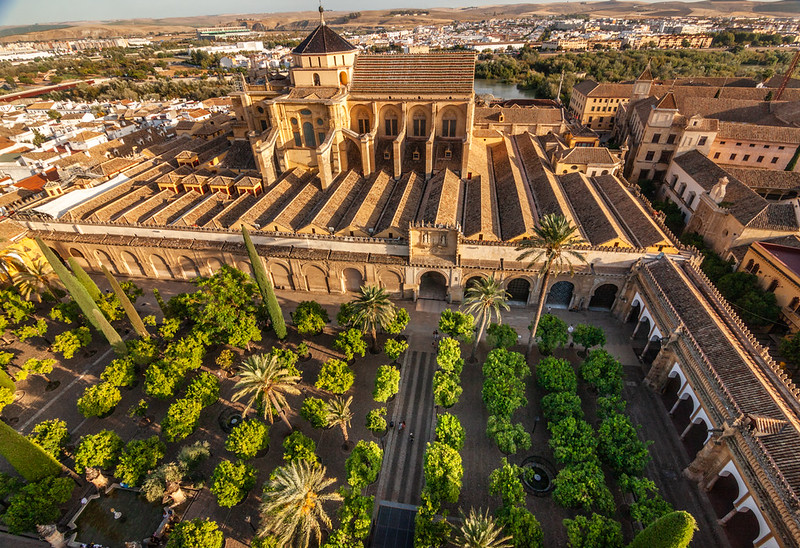
Types of tranquility in the Qur’ân
Worry is one of the greatest problems of our time, and since the human mind only finds true peace when it is in relationship with its Creator, it is necessary to seek a divine solution in order to achieve it. In studying the Qur’ân, we notice that Allah has classified tranquility into five kinds: The one that occurs with the night, the one between the spouses, the one with the prayer of the Prophet, the one of the Israeli coffin, and finally The absolute tranquility.
- The Tranquility of the Body
The first stage of tranquility is that of the body. One of the means that immobilize the body and also the mind is sleep. Thus, the Creator of the universes informs us that He created the night so that men can benefit from rest. He made the night a phase of rest; and the sun and the moon to measure time. This is the order conceived by the Mighty and the Omniscient One.
“It is He Who causes the dawn to split forth, and has ordained the night for repose, and the sun and the moon for reckoning time. All this is determined by Allah the Almighty, the All-Knowing.” (Qur’ân, 6: 96).
فَالِقُ ٱلْإِصْبَاحِ وَجَعَلَ ٱلَّیْلَ سَکَنًا وَٱلشَّمْسَ وَٱلْقَمَرَ حُسْبَانًا ذَٰلِکَ تَقْدِیرُ ٱلْعَزِیزِ ٱلْعَلِیمِ
In this noble verse, God presents Himself as “the Mighty One” and “the Omniscient One”, thus, He determines the function of everything He has created, and tells us that He has made the night for His creatures to calm down and rest.
- Sentimental Tranquility
The second kind of tranquility is that of feeling, when a man and a woman are in a relationship, in fact, they tranquilize themselves emotionally and also physically. The Creator states, clearly, that He created husbands and wives to live in tranquility:
“And of His signs is this: He created for you helpmeets from yourselves that ye might find rest in them, and He ordained between you love and mercy. Lo! herein indeed are portents for folk who reflect.” (Qur’ân 30:21).
وَمِنۡ اٰيٰتِهٖۤ اَنۡ خَلَقَ لَكُمۡ مِّنۡ اَنۡفُسِكُمۡ اَزۡوَاجًا لِّتَسۡكُنُوۡۤا اِلَيۡهَا وَجَعَلَ بَيۡنَكُمۡ مَّوَدَّةً وَّرَحۡمَةً ؕ اِنَّ فِىۡ ذٰ لِكَ لَاٰيٰتٍ لِّقَوۡمٍ يَّتَفَكَّرُوۡنَ
At the beginning of this holy verse, Allah enumerates one of His Signs (creation of the spouses) and then He insists that He creates affection and kindness between the spouses so that they may be tranquilized and at the end of the verse, He invites to reflect on His Signs more and more.
- Inner Tranquility
It is obvious that the prayer of the perfect man brings several valuable effects. One of these results is getting rid of feelings that are incompatible with the human spirit and as soon as they disappear, positive inner emotions, such as tranquility, replace them. According to the Holy Qur’ân, the prayer of the Prophet (pbuh) brings tranquility to His people.
“Take from their wealth ˹O Prophet˺ charity to purify and bless them, and pray for them—surely your prayer is a source of comfort for them. And Allah is All-Hearing, All-Knowing. “(Qur’ân 9: 103).
خُذْ مِنْ أَمْوَالِهِمْ صَدَقَةً تُطَهِّرُهُمْ وَتُزَكِّيهِم بِهَا وَصَلِّ عَلَيْهِمْ إِنَّ صَلَاتَكَ سَكَنٌ لَّهُمْ وَاللَّهُ سَمِيعٌ عَلِيم
In the above mentioned verse, God says that He hears the voice of the prayer of His Prophet and He knows everything. Therefore, the effects of the Prophet’s prayer come from Allah and to acquire them, one must resort to the Prophet.
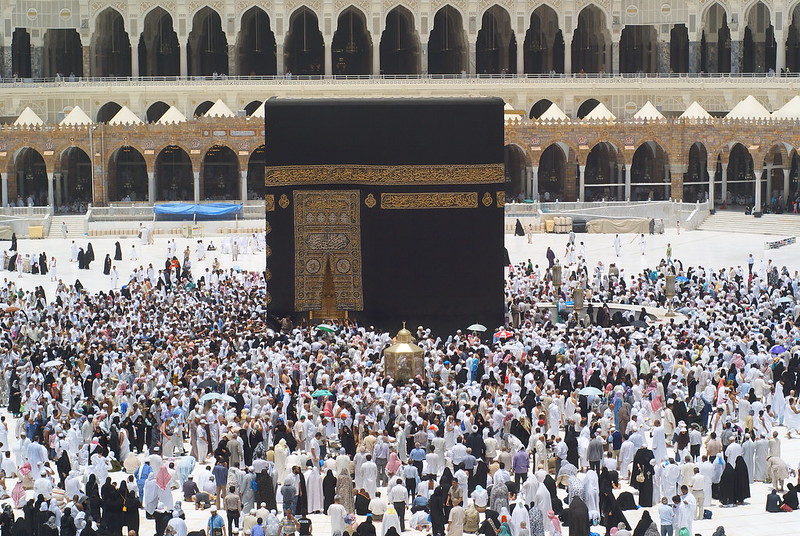
- The Symbols of Tranquility
The people of Israel have asked their prophet Samuel to reveal to them a sign that proves that Saul’s kingdom is a fact destined by God. In response to this request, he presented them with a coffin containing tranquility. And their prophet said to them, “The sign of his kingdom will be that the Covenant Chest will come to you; it contains a tranquility granted by your Lord. “
“And their Prophet said to them: “The Sign of his dominion is that in his reign the Ark, wherein is inner peace for you, will be brought back to you, and the sacred relics left behind by the house of Moses and the house of Aaron borne by angels. Truly in that is a Sign for you, if indeed you are people of faith.”” (Qur’ân 2: 248).
وَقَالَ لَهُمۡ نَبِيُّهُمۡ اِنَّ اٰيَةَ مُلۡکِهٖۤ اَنۡ يَّاۡتِيَکُمُ التَّابُوۡتُ فِيۡهِ سَکِيۡنَةٌ مِّنۡ رَّبِّکُمۡ وَبَقِيَّةٌ مِّمَّا تَرَكَ اٰلُ مُوۡسٰى وَاٰلُ هٰرُوۡنَ تَحۡمِلُهُ الۡمَلٰٓـئِكَةُ ؕ اِنَّ فِىۡ ذٰلِكَ لَاٰيَةً لَّـکُمۡ اِنۡ كُنۡتُمۡ مُّؤۡمِنِيۡنَ
According to this noble verse, objects relating to divine persons, such as prophets, are holy and bring tranquility; thus, Muslims consider everything that belongs to the Holy Prophet and his family as sacred objects.
- The perfect tranquility
Tranquility has different levels, but the best and most complete is that of the heart because it is created only as a result of a good relationship with God while the other levels of tranquility are provided by other factors such as sleep, sexuality, yoga etc. Allah has said that He has sent down tranquility into the hearts of the believers; as He sent down His Book to His Messenger: “It is He who has sent down tranquility into the hearts of the believers that they may add faith to their faith. To Allah belong the armies of the heavens and the earth, and Allah is All-Knowing and All-Wise. (Qur’ân 48:4).
“It is He who sent down tranquility into the hearts of the believers that they would increase in faith along with their [present] faith. And to Allah belong the soldiers of the heavens and the earth, and ever is Allah Knowing and Wise. “
According to this verse, tranquility has a descending nature on the part of God; therefore, it has the divine spirit and when it descends upon a heart, in fact, a heavenly state will be dominant and man will enjoy it infinitely.
The essence of tranquility according to the Qur’ân
The Qur’ân explains the concept of tranquility in sixty verses:
Firstly, it considers that the tranquility gained in this world is unreal because the spirit of man is eternal and this world is ephemeral and therefore they do not agree, as it is recited below:
Those who do not hope to meet Us, who are satisfied with the present life and feel secure in it, and those who are inattentive to Our signs [or verses], their refuge will be Fire, for what they acquired. (Qur’ân 10: 7-8)
إِنَّ ٱلَّذِینَ لَا یَرْجُونَ لِقَاءَنَا وَرَضُوا بِٱلْحَیَو ٱلدُّنْیَا وَٱطْمَأَنّوا َُا ٰةَّذِینَ ِهُم عَنْ ءَایَٰتوَٱلَا غَٰفِلُونَ أُولَٰئِکَ مَأْوَىٰهبِه بِمَا ُِن یَکْسِبُونَ
إِنَّ ٱلَّذِینَ لَا یَرۡجُونَ لِقَاۤءَنَا وَرَضُوا۟ بِٱلۡحَیَوٰةِ ٱلدُّنۡیَا وَٱطۡمَأَنُّوا۟ بِهَا
God reveals to us that the only way to have peace of mind is by the evocation of Allah:
“Those who have believed, and whose hearts are at peace with the remembrance of Allah.” Is it not through the remembrance of Allah that hearts are tranquilized? “(Qur’ân 13:28).
الَّذِينَ آمَنُواْ وَتَطْمَئِنُّ قُلُوبُهُم بِذِكْرِ اللّهِ أَلاَ بِذِكْرِ اللّهِ تَطْمَئِنُّ الْقُلُوبُ
But of course He emphasized that it is necessary, first of all, that men, themselves, begin to change their inner states as He expresses it hereafter:
“Truly, Allah does not change the state of a people, until the [individuals of the people] change what is in themselves. “(Qur’ân 13: 11).
اِنَّ اللّٰهَ لَا يُغَيِّرُ مَا بِقَوۡمٍ حَتّٰى يُغَيِّرُوۡا مَا بِاَنۡفُسِهِمۡ
Allah, Himself, has ensured that He sends down tranquility into the hearts of the believers:
“It is He Who has sent down tranquility into the hearts of the believers. “(Qur’ân 48: 4).
هُوَ ٱلَّذِىٓ أَنزَلَ ٱلسَّكِينَةَ فِى قُلُوبِ ٱلۡمُؤۡمِنِينَ
And then He indicates how people can have peace:
“Those who believe and reform, no fear shall be on them, and they shall not be grieved. “(Qur’ân 6: 48)
فَمَنۡ اٰمَنَ وَاَصۡلَحَ فَلَا خَوۡفٌ عَلَيۡهِمۡ وَلَا هُمۡ يَحۡزَنُوۡنَ
When a man is at rest, he will never feel fear or sorrow:
“Truly, the beloved of Allah will be safe from fear, and they will not grieve. “(Qur’ân 10:62).
اَلَاۤ اِنَّ اَوۡلِيَآءَ اللّٰهِ لَا خَوۡفٌ عَلَيۡهِمۡ وَلَا هُمۡ يَحۡزَنُوۡنَ
The believer is prudent and takes care to control himself when he finds himself in any situation, whether he is rich or poor.
If the feeling of tranquility is created by trust in God, it will be deep and stable; therefore, hearts are tranquilized only by evoking the true source of tranquility.
The believer might feel anxiety because of a threat or a situation of failure, but this kind of anxiety is quite normal.
Nevertheless, we must not forget that God does not secure believers from their ploys.
“Are they safe from Allah’s scheme? Only lost people feel safe from Allah’s plan. “(Qur’ân 7:99)
اَفَاَمِنُوۡا مَكۡرَ اللّٰهِ ۚ فَلَا يَاۡمَنُ مَكۡرَ اللّٰهِ اِلَّا الۡقَوۡمُ الۡخٰسِرُوۡنَ
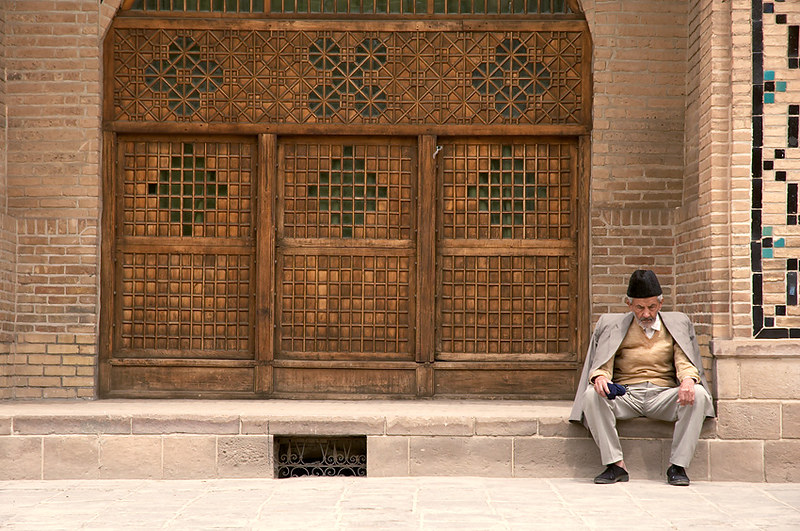
Pure tranquility
Pure tranquility contains many characteristics:
The first character of pure tranquility is that it is clean and without any impurity; this kind of tranquility is only found in a completely pure spring.
All other kinds of tranquility do not give the pleasant state that pure tranquility gives; for their quietness lasts for a limited time, whereas tranquility from God (who is the true source of tranquility) gives a feeling of pleasant calm and quietness, which is necessary for eternity.
“God brought down His quietness on His prophet and on the believers. And He sent down armies which you did not see. “(Qur’ân 9: 26)
أَنزَلَ ٱللَّهُ سَکِینَتَهُۥ عَلَىٰ رَسُولِهِۦ وَعَلَى ٱلْمُؤْمِنِینَ وَأَنزَلَ جُنُودًا لَّمْ تَرَوْهَا
The second character of pure tranquility is that it is deep; because the deep level of man’s existence needs deep tranquility and all other levels cannot meet his needs.
“Notice how hearts are calmed by remembering Allah. “(Qur’ân 13:28).
أَلَا بِذِکْرِ ٱللَّهِ تَطْمَئِنُّ ٱلْقُلُوبُ
The third character of pure tranquility is that it is perpetual; for we acquire temporary tranquility whose source is temporal and temporary, but if it is divine we feel an eternal and forever tranquility.
References
[i] Rachel Kaplan et Stephen Kaplan. The Experience of Nature. New York: Cambridge University Press, 1989.
[ii] Thomas R. Herzog et Patrick J. Bosley. “Tranquility and preference as affective qualities of natural environments.” Journal of Environmental Psychology, Volume 12, Issue 2, June 1992: 115-127.
[iii] Robert J. Pheasant, Mark N. Fisher, Greg R. Watts, David J. Whitaker et Kirill V. Horoshenkov. “The importance of auditory-visual interaction in the construction of ‘tranquil space’.” Journal of Environmental Psychology, 30(4), December 2010 :501-509.


